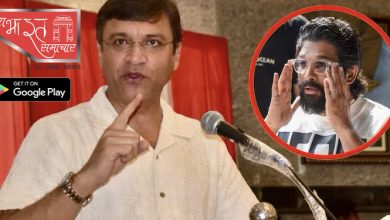India’s Congress party appoints first non-Gandhi president in 24 years
India’s Congress party has appointed its first president in 24 years not from the Gandhi dynasty, in an effort to reverse its apparent decline and take on the seemingly invincible Narendra Modi.
Mallikarjun Kharge, 80, a loyalist in the court of the Nehru-Gandhi dynasty which rules the party, defeated the rival candidate Shashi Tharoor by almost 7,000 votes in a poll of 9,000 party delegates.
Tharoor, 66, was a diplomat at the United Nations for 20 years before returning to India, and is not a member of the Gandhi inner circle.
Some analysts say the election was an attempt by the Gandhi family – matriarch Sonia, son Rahul and daughter Priyanka – to make the party appear less imperial and dynasty-dominated rather than to effect a real change in leadership. Ever since Modi came to power, he has relentlessly taunted the Congress as a “family business”.
“With a non-Gandhi as president, it will help blunt Modi’s barbs about a family-run party to some extent, particularly if Kharge can take some independent decisions without always running to the family,” said Sanjay Kumar, a political analyst and psephologist.
Sonia Gandhi was president until Rahul took over briefly in 2017 amid much equivocation over whether he really wanted the job. In 2019, after losing his parliamentary seat in a general election, Rahul resigned and his mother returned as president on a temporary basis.
Since then, the party has been in flux with Rahul appearing to continue as the de facto leader while senior officials have abandoned the party for lack of confidence in him.
With Sonia’s poor health making it impossible for her to continue indefinitely as president, it was imperative for the party to find an energetic new leader to tackle the daunting challenges posed by its own decline and Modi’s ascendancy.
The Congress party is no longer the formidable force that ruled much of India for decades. With Indian politics shifting to the right as a result of the rise of Modi’s Hindu nationalist Bharatiya Janata party (BJP), the 137-year-old Congress has struggled to remain in the game.
But it is the only party with a national presence, and no coalition can be viable without it. Kharge has to take on the BJP ideologically, excite party members and voters, and articulate an idea that can win the 2024 general election.
Kharge’s election has been met with mixed reactions. Those who wanted a young and charismatic leader have been dismayed. He is a Dalit from the southern state of Karnataka. Before the election, few Indians had heard of his name or recognised his face.
But Arati Jerath, an analyst, believes this could prove to be a new beginning, provided Rahul carves out a distinct role for himself.
“If the family let Kharge get on with revitalising the party and bringing in fresh talent while leaving Rahul free to lead agitations, connect with the people and shed his image as a part-time and non-serious politician, then this could be a new opportunity. If the party and family throw this opportunity away, it will be more of the same,” Jerath said.
Rahul is leading a protest march across India’s towns and villages over the next five months in an effort to improve his credibility and take on Modi’s “divisive” politics.
Kharge’s other challenge is to unite a squabbling party. The election stirred up even more divisions when it became clear that Kharge was the family’s choice, albeit unspoken. Tharoor and his supporters complained of an uneven playing field and said party leaders gave him the cold shoulder while embracing Kharge effusively.
A slip of the tongue by Rahul during a press conference in Andhra Pradesh on Wednesday exposed what critics of the party said was in any case a pre-determined result given the family’s preference for Kharge. Asked what his future role in the party would be post-election, Rahul said “ask Kharge”, several hours before the result was declared.




